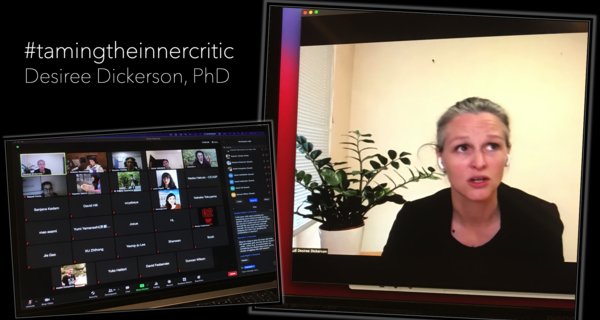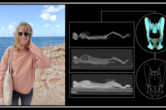CICASP Seminar Series Takes on Procrastination and the Inner Critic

With the CVID-19 pandemic currently raging into its second year, mental health has suffered the world over as economies fail, prospects dwindle and our social lives grind to a halt. The academy and those within it have not escaped such fates, and keeping up the morale of students and faculty alike has been a growing concern for universities worldwide.
In response to what we felt was a growing need, CICASP decided to take the opportunity to acknowledge the many intellectual and emotional hardships faced by our students and affiliates.
In a two-off CICASP webinar event, we invited Dr. Desiree Dickerson, a neuroscientist and clinical psychologist specializing in the mental afflictions of the research community, to speak to our graduate students and affiliates about a pair of critical topics confronting all of us in our endeavours to survive the myriad trials and tribulations of life in the academy: avoiding procrastination and silencing that pesky inner critic that robs us all of our self worth.
"What, procrastinate, me?"
What made the webinars stand out was the fact that Dr. Dickerson herself was a member of our collective community - being a PhD holder with postdoctoral experience in the neurosciences - and experienced many or all of the same challenges that we all face in this corner of the world. Each of us participants were therefore constantly left with that distinct feeling that the content was tailored to us as individuals, hammering home that idea that, indeed, these are common afflictions to us all in some form or another.
Though not all participants displayed their video feeds throughout the webinars, we could all feel the collective nods coming in synchronous waves as point after methodical point laid our psyches bare.
We could all relate to the famous words of Phil Connors, the fictional TV weatherman portrayed by Bill Murray in the prophetic (and iconic!) film Groundhog Day, "That's me! ... me, me, me ... me also."
Changing the Narrative
The webinar gave us some tools to both recognize and flip the script on such toxic inner thoughts, and identify the triggers and behaviors associated with them.
It was clear from follow-up surveys that these webinars resonated with our graduate students, who appreciated the opportunity and now have some more tools that can help them in their own quests to silence their inner critics and look procrastination square in the eye.
Here are a few comments from participants that reflect this fact:
- - "It was a fantastic talk. As a procrastinator myself, your talk gives me insight on how to minimize procrastination. Thank you!"
- - "Dear Dr. Dickerson, thank you so much for this wonderful talk. I feel it ... helped me to identify the triggers of my anxiety. I will start applying some of your advice."
- - "People may often feel distraught regarding issues on academic welfare and without keys to get better."
- - "My suggestion is to keep bringing more talks with specialists on this theme. By the number of attendants we can see how this impacts everyone's life."
The pair of webinars we participated in are just two of the many offered by Dr. Dickerson. Anyone interested in finding out more can click through to her webinar series here.











